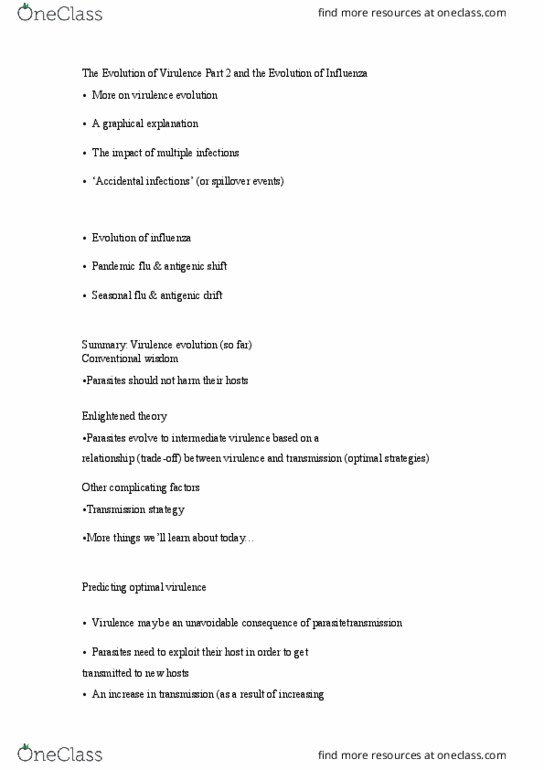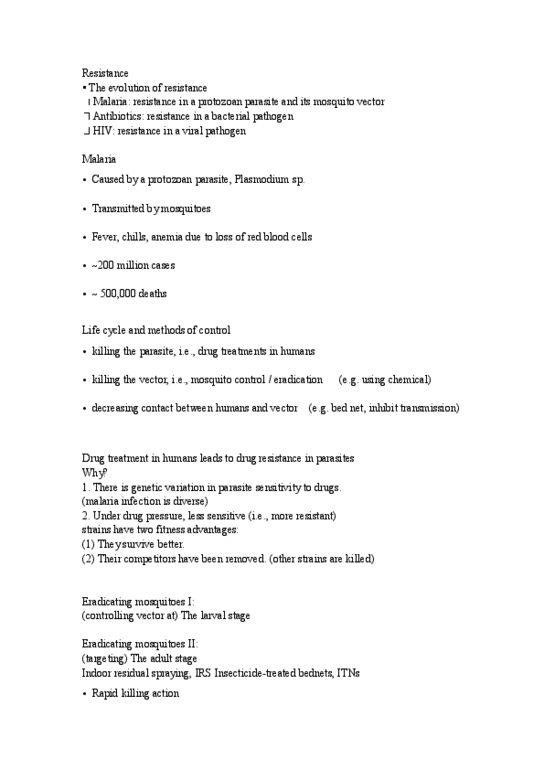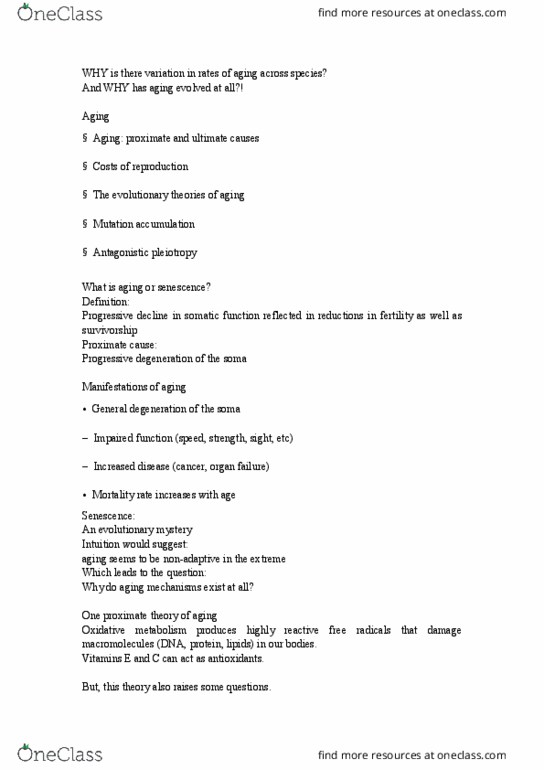BIO220H1 Lecture 9: Resistance
BIO220H1 verified notes
9/18View all
Document Summary
Malaria: resistance in a protozoan parasite and its mosquito vector. Malaria: caused by a protozoan parasite, plasmodium sp, transmitted by mosquitoes, fever, chills, anemia due to loss of red blood cells, ~200 million cases, ~ 500,000 deaths. Life cycle and methods of control: killing the parasite, i. e. , drug treatments in humans, killing the vector, i. e. , mosquito control / eradication (e. g. using chemical, decreasing contact between humans and vector (e. g. bed net, inhibit transmission) Drug treatment in humans leads to drug resistance in parasites. Eradicating mosquitoes i: (controlling vector at) the larval stage. Indoor residual spraying, irs insecticide treated bednets, itns: rapid killing action, reduce vector density and vector longevity (reduce the contact, insecticide chemical applying selection pressure) Evolution of insecticide resistance in mosquitoes: treatment with an organophosphate insecticide started in 1968, treatment ended in 1990 (switched to bacillus sphaericus (bs) toxin) Insecticide use began in 1968 and was stopped in 1990.




